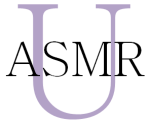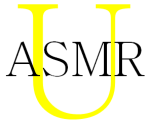
How does the response to an ASMR trigger change if it is sound only? Visual only? Or a mix of Sound and Visual?
In this study, you will be asked about your prior ASMR and misophonia experiences, and then you will share your reactions to three ASMR stimuli types; acoustic (no video, only sound), visual (no sound, only video), and audiovisual (both).
This study is being conducted by Pauline Becker, a college student pursuing her B.Eng. in media engineering at Hochschule Düsseldorf in Düsseldorf. Her faculty advisor is Prof. Dr. Jochen Steffens.
Her thesis is titled: “Autonomous Sensory Meridian Response: The impact of acoustic, visual and audiovisual triggers in comparison”
Pauline is looking for participants to take her online survey. The survey is open to individuals of any age who experience ASMR. The survey is fully anonymous, will take about 15 minutes to complete, and the results will only be used for academic purposes.
Below is a link to the survey and more info. Continue reading
 This is the second ASMR research study published by Dr Agnieszka Janik McErlean (Bath Spa University, UK) and Dr Michael Banissy (Goldsmiths, University of London, UK).
This is the second ASMR research study published by Dr Agnieszka Janik McErlean (Bath Spa University, UK) and Dr Michael Banissy (Goldsmiths, University of London, UK). Romke Rouw of the University of Amsterdam and Mercede Erfanian of Maastricht University, both located in The Netherlands, have published a research paper on misophonia.
Romke Rouw of the University of Amsterdam and Mercede Erfanian of Maastricht University, both located in The Netherlands, have published a research paper on misophonia.